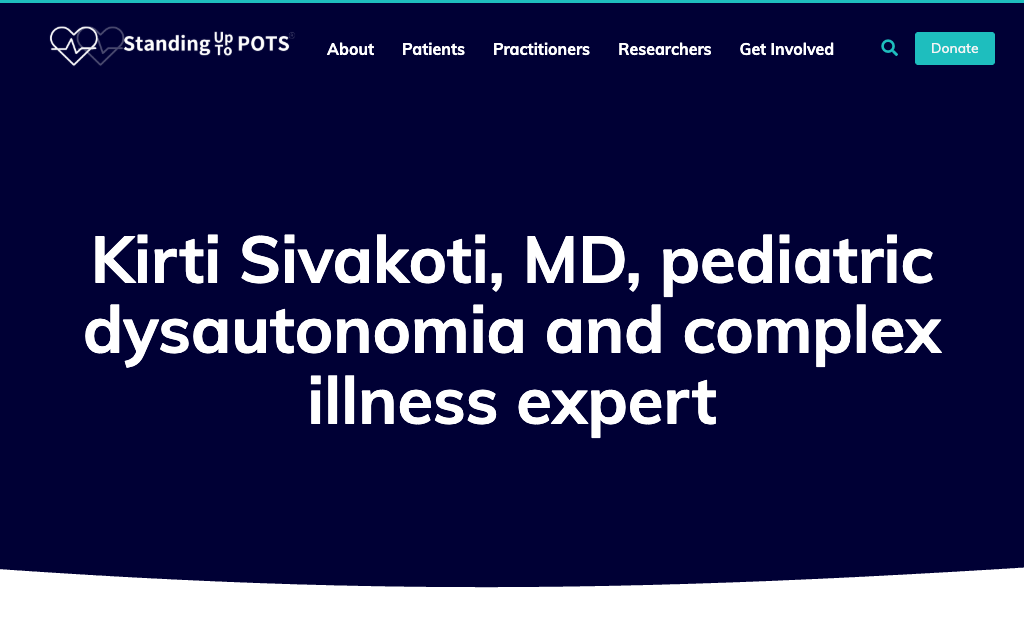Kirti Sivakoti, MD, pediatric dysautonomia and complex illness expert
Pediatrician Dr. Kirti Sivakoti describes building a multidisciplinary program (PAUSE) for children and teens with dysautonomia/POTS, chronic pain, and ME/CFS features, after seeing how standard clinic models and specialty silos fail these complex patients. She emphasizes early recognition and validation, the high functional impact on schooling and development, and common comorbidities (hypermobility/EDS, GI dysmotility, long COVID, PEM). First-line care is structured and measured: daily fluid targets (often 80–100 oz), quantified sodium intake (4–10 g with tracking), compression (preferably high-waist), and carefully paced cardiac reconditioning; pharmacologic add-ons (e.g., fludrocortisone, midodrine) are individualized when volume strategies or comorbid GI limits impede progress. She notes many improve (≈75–80%) with comprehensive, team-based care (PT versed in dysautonomia and hypermobility, behavioral health for pacing, cognitive restructuring, pain-retraining), and warns that PEM and hypermobility require slower, joint-safe progression to avoid crashes and injury. Sivakoti highlights system barriers (short visits, lack of coordination), stigma (including mislabeling families), disparities in access and recognition, and the need to train clinicians. She urges broadening focus beyond strict heart-rate criteria—since many disabled youth have chronic orthostatic intolerance without meeting POTS thresholds—and points to emerging interest in cerebral blood flow as a more relevant physiologic marker. Overall, she offers a hopeful message: with the right diagnosis, education, accommodations, and multidisciplinary care, most pediatric patients can regain function and pursue their goals; her clinic also accepts out-of-state patients for in-person care.
